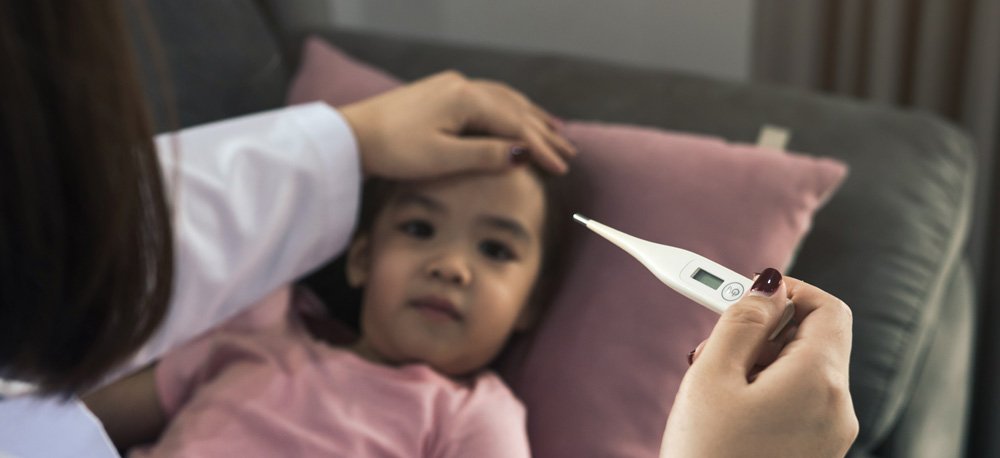-
June 23, 2020
-
0


The Truth About Menopause: What to Expect
In short, menopause is the end of a woman’s menstrual cycles and her natural reproductive years. Menopause is the result of a normal and gradual change in women’s bodies induced by changes in hormones, ultimately leading to a complete stop of ovulation.
Menopause is a natural process and a stage that all women reach. With its onset, the two hormones which are most significantly affected are estrogen and progesterone. These hormones control your menstruation (periods) and ovulation (release of eggs). Menopause is said to occur when the ovaries stop releasing an egg every month and menstruation stops permanently. Most women stop having periods around the ages of 45-55, with menopause beginning at an average age of 51.
How does menopause progress with time?
Menopause is considered to occur over 3 stages. They are:
1.Perimenopause: This refers to the phase that begins several years (around 8-10 years) before menopause and eventually leads to it. It is characterised by a reduction in the production of estrogen by the ovaries. In the last few years of this stage, estrogen production falls even more and women often experience menopausal symptoms at this time. Perimenopause ends when your body finally stops releasing eggs.
2.Menopause: This stage refers to the phase when your menstrual periods have stopped for at least 12 months. Most of the estrogen production ends by then and no eggs are released by your ovaries.
3.Postmenopause: This is the stage that refers to the years after menopause. This is when risks related to low estrogen in your body increase.
What are the symptoms of menopause?
With dropping estrogen and progesterone levels in your body, bodily functions like metabolism, collagen production, and menstruation are affected leading to side-effects or symptoms such as:
1.Hot flashes or night sweats: Most women nearing menopause experience hot flashes, a sudden feeling of heat that spreads over the upper body that can be accompanied by sweating, blushing, heart palpitations, and dizziness.
2.Mood swings and depression: Declining levels of estrogen can cause emotional changes in women. These emotional symptoms of menopause are generally irritability and feelings of sadness.
3.Sleeplessness and fatigue: Many women undergoing menopause suffer from an inability to fall asleep or to enjoy continued sleep at night. A lack of good quality sleep can lead to tiredness during working hours.
4.Change in libido: Loss of estrogen and testosterone with menopause can lead to changes in a woman’s sex drive. Women may find that they are not as easily aroused and are less sensitive to touch.
5.Vaginal dryness: Low levels of estrogen can cause a drop in the blood flow to the vagina and affect vaginal lubrication.
6.Urinary incontinence: Changes in estrogen level can cause weakening of the pelvic floor, the muscle group that supports the urethra and the bladder, resulting in bladder-control issues in women.
How to manage menopausal symptoms?
Menopause is a natural process and many symptoms associated with menopause cease with time. However, some treatments can help with the symptoms. They are:
1.Hormone replacement therapy (HRT): Medication that replaces the hormones that are no longer being naturally produced in your body can ease symptoms such as hot flashes, bone loss, and vaginal symptoms. However, hormone therapy carries implicit risk and increases your chances of developing heart conditions and breast cancer.
-
Non-hormone medications to treat and ease hot flashes, blood pressure, and vaginal dryness. -
Room temperature reductions and dressing in light clothing and in layers to deal with hot flashes. -
Strengthening the pelvic floor muscles with Kegel exercises to prevent bladder incontinence. -
Exercising regularly to maintain proper sleep and body tone to avoid heart conditions and osteoporosis. -
Limiting alcohol intake and stopping smoking. Smoking can increase hot flashes and cause early menopause. -
Topical hormone creams or over-the-counter vaginal lubricants for dryness.
Can there be health complications after menopause (postmenopause)?
In postmenopause, your estrogen levels will remain at low levels. The risk of the following conditions increases after menopause:
1.Osteoporosis: The loss of estrogen in your body exacerbates the loss of bone density. This change is particularly seen in the years immediately after the last menstrual cycle. This loss of bone mass can make your bones thin and brittle, causing a condition called osteoporosis. Osteoporosis makes you more susceptible to spine, hip, and other bone fractures.
According the National Osteoporosis Foundation, osteoporosis is so prevalent in postmenopausal women that 80% of all osteoporosis patients in the US are women. To mitigate the effects of estrogen loss, your doctor may prescribe you calcium and Vitamin D supplements and advise you to exercise regularly and weight train to strengthen your muscles.
2.Cardiovascular disease: While menopause may not cause heart conditions directly, it can increase their risk. The hormonal imbalance following menopause can affect blood pressure, the ability to maintain flexible arteries, and “bad” cholesterol levels that can lead to cardiovascular conditions. In addition, there is an increased risk of heart attacks for women around 10 years after menopause.
Maintaining a healthy weight and a balanced diet (avoid added sugars and salt in particular), exercising regularly, and not smoking or drinking can reduce your chances of cardiovascular diseases.
Menopause is a normal stage in a woman’s life marking the end of her menstrual cycles. Hormone levels drop, especially estrogen and progesterone, and this leads to an increased risk for osteoporosis and heart disease in the postmenopausal. The associated symptoms of menopause can be managed with healthy lifestyle habits and adaptations and medication if necessary. If you are concerned about menopause or are experiencing symptoms that are affecting your ability to function normally, contact us to book an appointment with our specialists at the Department of Obstetrics and Gynaecology at Sagar Hospitals.
Contact
JAYANAGAR
BANASHANKARI






